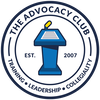|
Say you attend a cocktail party or some other meet-and-greet occasion. Someone learns you practise law. You are asked for advice. How should you deal with that? To start with, I don’t give advice, except legal advice. And then, only at the office. Even doctors don’t give free medical advice at a cocktail or reception. And dentists don’t extract teeth over wine and cheese, either. At parties, no one wants (or needs) advice. They want validation, confirmation, acknowledgement. Even when they’re asking for advice – they’re not, really. So with that in mind, I offer only a few ‘suggestions’, from my own experience:
by Eugene Meehan, QC, Advocacy Club Presenter Eugene’s email: [email protected]
0 Comments
Articling students face a daunting task as we navigate our entry into the legal profession. We are confronted with long hours, a steep learning curve, high expectations. Where can we turn for guidance? What Does a Mentor Offer? Mentors can bring a sense of normalcy to an otherwise crazy 10 month odyssey. They have experience and knowledge. They have experienced precisely what we are going through. This is an invaluable opportunity for us as we morph from lowly law grads to become respected Bar members. Caterpillars to butterflies. What is most shocking about articling is how little law school prepares us to practice law. The law is just so esoteric for newcomers. Mentors often perform double duty – they counsel mentees on career development while also acting as a sounding board on “how to be a lawyer”. I had experience with mentorship in my professional life before law school. The importance of having a good legal mentor cannot be overstated. With most large employers, mentorship sessions focus solely on career development goals. Pre-ordained “checkbox” questions are distributed from the executive suite at head office and then down through the ranks. This results in uninspiring mentorship sessions. These feel as though they occurred simply because they had to. On the other hand, mentorship sessions with lawyers provide the chance to discuss the challenges we face with veterans who have walked in our shoes. They know a thing or two about navigating the complex practice of our profession. Mentorship takes on a greater meaning in the early stages of our legal careers. We face many professional pitfalls as articling students and junior associates. Being able to discuss our experiences with our mentors can enrich our journey. Sharing our mentors’ experiences, successes, failures, and career aspirations is mutually beneficial and makes for lively exchanges. Have you noticed how lawyers love to share their experiences? War stories are a major part of our professional culture. The Take-Away Here is my advice to articling students in the future. Benefit from your mentor’s hindsight. Let your mentor benefit from your emerging views on the profession. You’ll both be better for it. by Neil Kennedy, Advocacy Club Member [Note: since posting this, in 2017 Neil has left the preactice of law to join the Canadian Forces, infantry. We wish him well and thank him for his service to our country.] |
Guest BlogWelcome to the Advocacy Club's guest blog. Here you will find mentoring tips and techniques from some of John Hollander's students and associates. Archives
November 2017
Categories
All
|
© 2022 Advocacy Club Books Inc. • All Rights Reserved • Website Design by Rebecca K. Hollander
E-mail: [email protected]
LinkedIn: linkedin.com/in/john-hollander-80687112
E-mail: [email protected]
LinkedIn: linkedin.com/in/john-hollander-80687112



 RSS Feed
RSS Feed